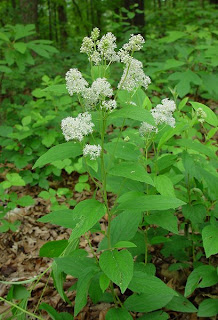DAMIANA

Latin Name: Turnera aphrodisiaca
Alternate Names: Turnera
Family: TURNERACEAE
Parts Used: Above ground portion.
Properties: Alterative, Aperient, Aphrodisiac, Carminative, Cholagogue, Diuretic, Emmenagogue, Laxative, Nervine, Stimulant, Urinary Antiseptic, Yang Tonic.
Internal Uses: Asthma, Catarrh, Constipation, Depression, Emphysema, Frigidity, Hot Flashes, Impotence, Parkinson's Disease, Vertigo
Internal Applications: Tea, Tincture, Capsules.
It has been used as a tea to help teenagers overcome the shyness and self-consciousness that sometimes accompanies puberty. It can also be used for sexual performance anxiety in adults. The bitter principle, damianin, stimulates the nervous system and genitals and allows nerve messages to more readily spread through the body.
It has been used as a tea to help teenagers overcome the shyness and self-consciousness that sometimes accompanies puberty. It can also be used for sexual performance anxiety in adults. The bitter principle, damianin, stimulates the nervous system and genitals and allows nerve messages to more readily spread through the body.
Culinary uses: Liqueurs.
Energetics: Pungent, Bitter, Warm, Dry.
Chemical Constituents: Essential oil (containing cineol, cymol, pinene), cyanogenic glycosides, damianin, thymol, tannin, phosphorus.
Contraindications: Consume no more than one cup of tea, one dropperful of tincture, or two capsules daily, so as to avoid stressing the liver, since its effects are cumulative. It is generally considered safe, but avoid using Damiana in cases of urinary tract diseases or liver disease.
Comments: Damiana is a small shrub native to the American Southwest, Mexico and the West Indies. It was used by the Mayans and Aztecs as a sexual stimulant and to treat respiratory disorders. Some people smoke Damiana in a waterpipe as a prelude to lovemaking. It was also burned ceremoniously to enable participants to see visions. Damiana was used in the 1930s by livestock breeders.
The common name Damiana includes the species Turnera diffusa, which is used interchangeably with Turnera aphrodisiaca.
The common name Damiana includes the species Turnera diffusa, which is used interchangeably with Turnera aphrodisiaca.

